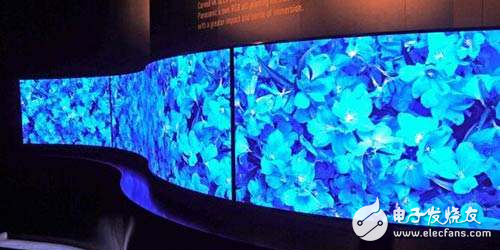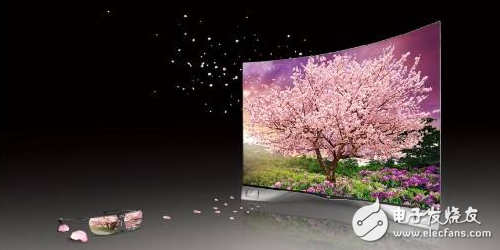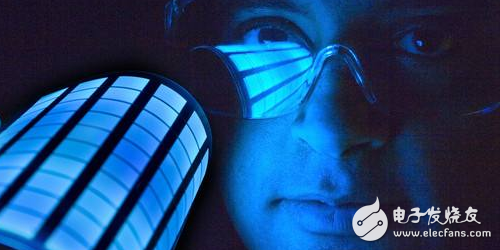In the fall of 2017, Apple will use organic screens (OLEDs) in mobile phones for the first time in the history of the company. This screen quality is better and more energy-efficient. This move by Apple has also caused a shock in the global display panel industry. Japan Display Corporation (hereinafter referred to as "Japan") is one of Apple's largest screen suppliers. Apple contributed 40% of the company's revenue, but in the face of organic screen switching, the company has fallen behind.
According to the Nikkei News, Nisshin has realized that it is backward, and will make major restructuring of the company's business and adjust its direction so that Apple's organic screen orders can be obtained.

In the fall of 2017, Apple will release three new phones, but only the significant 10-year phone will use organic screens, which is not Apple's intentional. It is reported that the global mobile phone organic screen is currently in short supply. Apple has purchased hundreds of millions of organic screens from Samsung Display, but can not meet the needs of all three mobile phones, so Apple will gradually transition to organic screen.
Why is there a shortage of organic screens? One of the reasons is that Apple, a long-term supplier such as Sharp and Nisshin, is slow in switching to organic screens and cannot keep up with Apple's rhythm.
According to the Nikkei News, Nissin was originally scheduled to carry out small-scale reforms, but it has now changed its decision to carry out a major restructuring of the company in order to change the weak position of the organic screen. The company will transform the production line and even seek capital cooperation.

According to reports, on June 21, Nisshin will hold a general meeting of shareholders, when new management will be appointed. In August this year, the new management will submit a medium-term development and restructuring plan. At present, the Japanese industrial innovation organization of the major shareholder of the company, and the Japanese government department behind it, hope that the management of the company will have "new blood."
The business restructuring plan includes the integration and restructuring of panel factories in Japan and the redistribution of employees. Change the loss situation in the past years.
In order to help the business restructuring, the company has begun to seek external financial assistance, including Japanese industrial innovation institutions and other funds. In addition, the company has also begun to strengthen cooperation with Japanese and overseas companies in capital and other aspects.
In 2012, Toshiba, Sony and Hitachi's LCD panel business merged and a new Japanese display company was formed. At present, in the small and medium-sized LCD panels used in products such as smartphones, Nisshin has become one of the largest manufacturers in the world.
However, the continuation of the fixed costs of the above companies also affected the subsequent operations of the company. In the fiscal year that ended in March, the company lost again, which is the third consecutive year of losses.

At the end of last year, Nissan announced a plan to enhance the organic screen business and even received nearly 700 million US dollars in funding from the Japanese industrial innovation agency. According to the plan, the company's revenue and earnings will grow in the next few years.
The main business of Riding is the LCD panel, but until the beginning of this year, the LCD screen business was in a downturn, which aggravated the company's financial distress, and in the current second quarter, the financial dilemma seems to be intensifying.
A few years ago, some mobile phone manufacturers began to use organic screens, but this year Apple will start switching to organic screens, which has had a huge impact on the global panel industry. At present, in the field of mobile phone organic screens, Samsung monitors occupy an exclusive monopoly position, while LG Display, Sharp, and Nisshin have insufficient investment in the organic screen field, and it is still unable to mass-produce at present.
Among the total income of Japan, Apple contributed 40%. But in the transformation of the organic screen, the company is in a backward position, which means that Apple's more mobile phone screen orders will be lost to competitor Samsung.
In the past, LG Display Company focused on the development of organic screens for TV sets, and is now also deploying organic screens. It is estimated that the company will also become a supplier of Apple's mobile phone screen next year.
According to the Nikkei News, Nisshin will abandon the performance targets set last year, with a focus on reducing fixed costs. However, if you want to expand the organic screen business, Nisshin must invest large-scale, but its funds will face difficulties. It is reported that a large-scale organic screen factory needs to invest nearly 3 billion US dollars.
In addition, before the Panasonic and Sony's organic screen business has merged, the new formation of JOLED company, Nissin originally planned to integrate the company as a branch business, but this plan will be postponed this year, but JOLED President Nobuhiro Higashiiriki will serve Sun Xian’s CEO.
6-9V Lithium Manganese Battery
Jiangmen Hongli Energy Co.ltd , https://www.honglienergy.com